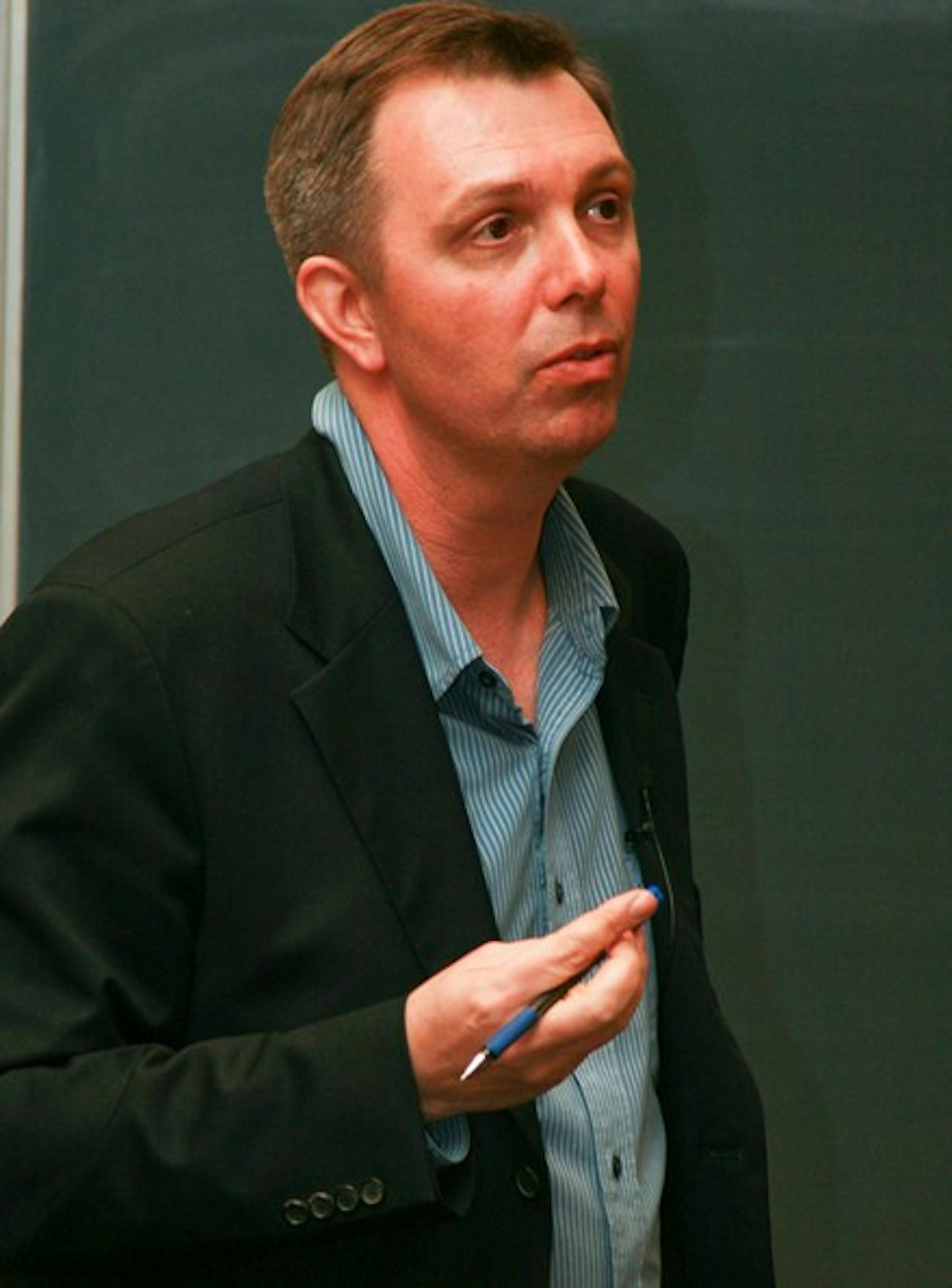Wilson said the rescue effort was the "biggest challenge of my career."
He described this and other experiences he has had while reporting in Israel, Iraq and Lebanon during a lecture, titled "Reflections in the Middle East," given before a large audience of students, faculty and community members in the Rockefeller Center on Thursday night.
The talk marked the first time Wilson has spoken publicly about the details of his involvement in Johnston's rescue.
"Despite my British reserve, I might get a little emotional," Wilson told the crowd.
Wilson presented actual messages that he exchanged with Johnston's captors, members of the militant Army of Islam group, describing the tactics he employed, like consistently using Johnston's name to personalize the situation.
The accurate use of language was a theme that pervaded Wilson's discussion.
"In the Middle East, the use of language needs to be very, very precise," Wilson said.
Particularly sensitive word choice includes the term "terrorist" and the distinction between wall, fence and barrier in the context of the Israeli-Palestinian border, Wilson said.
During a question and answer period following the lecture, Jordana Beeber '08 challenged Wilson on some of the word choices the BBC has made in its coverage of the Israeli-Palestinian conflict. She particularly questioned the use of the term "Jewish" to describe an Israeli town and "massacre" to describe an incident in Jenin, a Palestinian city.
"When you talk about the Israel-Palestinian conflict, almost every time, people show up with passionate views," Wilson told The Dartmouth after his lecture. "I kind of quite enjoy it because I feel very strongly about what [the BBC does]. Just as we as journalists hold people in power to account, I think it's entirely reasonable that our audiences hold us to account."
Rather than attempt to give a complete history of contemporary Middle Eastern events, Wilson focused on his personal experiences in the region from 2001 through 2007.
"I had an extraordinary six years covering the Middle East," he said. "It's a region, which does, in my experience, bring out quite the best and occasionally the worst in people. But it is a part of the world which is central to all our futures -- one which we must all try to understand better."
Currently, Wilson is continuing his study of the Middle East as one of the 2008 fellows at Harvard University's Nieman Foundation for Journalism. Wilson is specifically looking at the United States and the "War on Terrorism."
"I am very interested in what are the possible responses to Islamic fundamentalism," Wilson told The Dartmouth. "As a journalist, I am fascinated by what questions I should be asking. I think that there was a collective failure out of the Iraq War. We all slightly sleep-walked into something that we are going to be paying for for a long time. We should all look back and ask, 'Were we asking the right questions?'"
Harvard has also allowed Wilson the opportunity to discuss issues surrounding the War on Terrorism with men and women that work for the U.S. military, he said.
"I've spent a lot of time with national security fellows, which is fascinating. These are quite senior officers from American army and Navy, from the Marines, the Air Force and the national security agency," Wilson said. "When you're in the field, dealings with soldiers are difficult so the chance to sit around with smart, young military men and women in an academic setting and talk to them about all these issues has been really interesting and very valuable."
During his brief time in the United States, Wilson has also been able to make some observations about American academic culture.
"What I find everywhere since I've came to the States is a real thirst for knowledge of the places that I've been," he said. "People are just really interested to hear about what a British journalist made of his time in Jerusalem and how international media perceives what's been happening in Iraq."
Wilson's lecture was sponsored by the Bernard D. Nossiter '47 fund, which brings Nieman fellows to Dartmouth.




